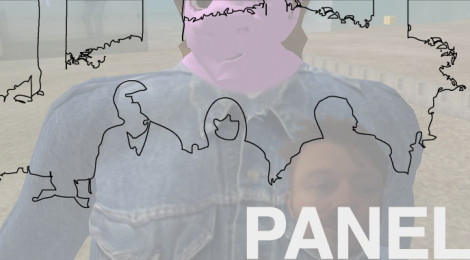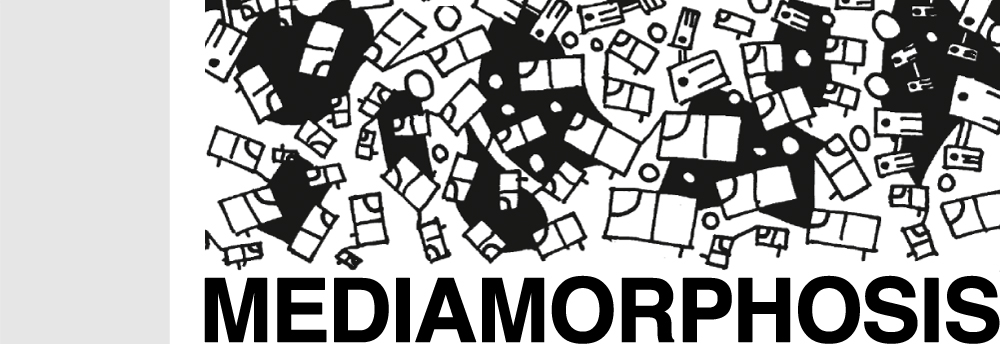
PANEL_Authenticity in Stupidity_May 10, 2013
“It no longer makes sense to think in medium-specific terms”, not necessarily because “digital media incorporate all previous media” as Henry Jenkins suggests, but because understanding of what there is and how knowledge is arranged (the ontology and epistemology) has been transformed thanks to new technologies and the network. Hito Steyerl amongst others points to the links which still exist with materiality and the authentic (for example see link). If relationships with the material and between individuals have been altered due to the new media (and social networking in particular) then authenticity is perhaps revealed through the glitches, through intentional mockery or misuse of these new systems, hidden codes and artificial intelligence.
Micheál O’Connell/Mocksim’s artistic practice deliberately seeks to engage with error, the faults, digital and otherwise, including what is comedic. His research at Sussex is centering around the concept of Artificial Stupidity (as opposed to Artificial Intelligence). The suggestion is that the fractures in systems, in behaviour, the failures are not only reassuring but loaded too in terms of meaning. Marlene Haring’s activity, which purposely messes with the everyday processes people participate in, raises alarm bells about human intimacy. She is concerned with real social networking and the corporeal in a world seemingly obsessed with the on-line variety. For years Simon Morse has investigated the notations and signalling embedded but often unnoticed as part of the corporate and contemporary industrial/consumerist backdrop. He mocks these obscure and apparently functional languages through re-appropriation treating them as forms of amusement or decoration.
The panel will consider whether authenticity is revealed through such play, either by consciously seeking out what’s wrong and (re)presenting it or actually creating problems and so generating critique.
// Speakers_
Marlene Haring_Simon Morse_
Chaired by_Mocksim

 RSS - Posts
RSS - Posts